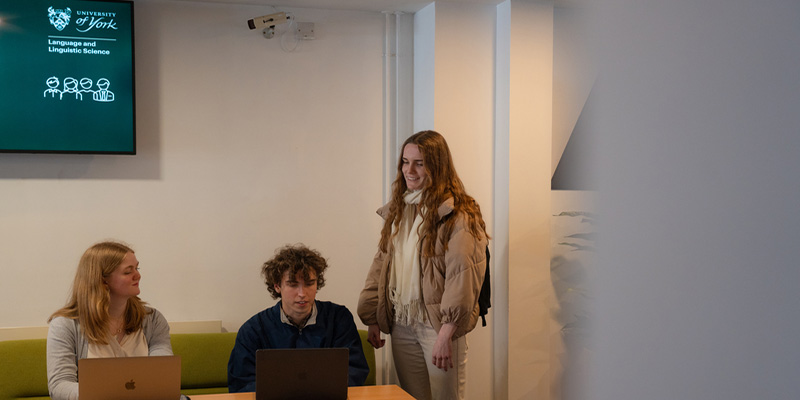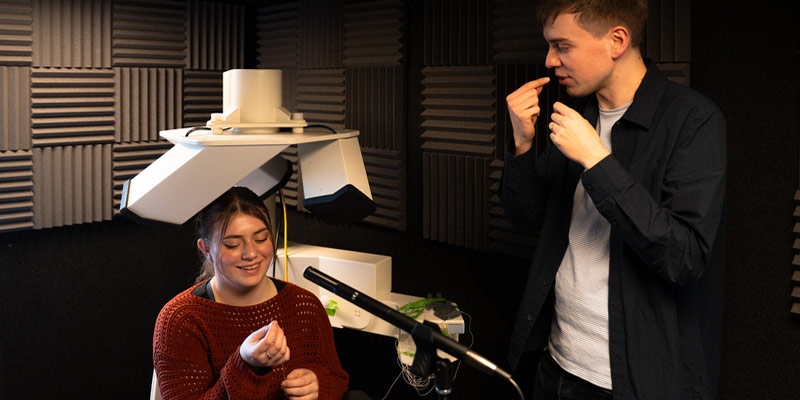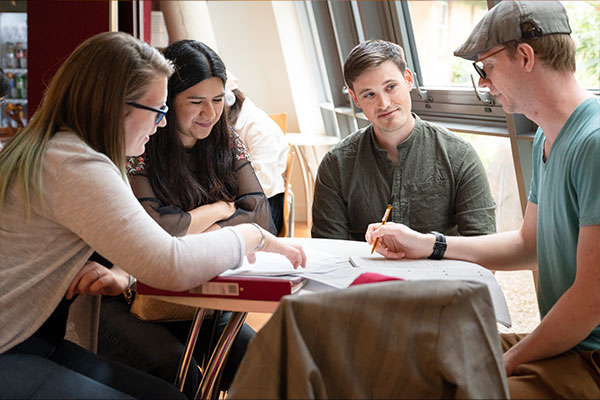| Length | Start dates (semester dates) | |
|---|---|---|
| PhD |
3 years full-time |
September, January |
Join an interdisciplinary research community with a wide range of interests that converge on the cognitive dimensions of language ability and use.
Your research
You'll design, conduct and write up an independent research project. Projects may investigate topics within language acquisition, language and cognition, language comprehension and language production.
Your research will be supported by specialist facilities available across the departments of Language and Linguistic Science, Psychology and Education. The psycholinguistics community at York uses methods including:
- eyetracking and pupilometry
- EEG and psychophysiology
- behavioural experiments
- polysomnography (sleep tracking)
- focus group monitoring technology
You will also benefit from the Psycholinguistics@York community, including informal work-in-progress discussions, talks by invited speakers and an annual presentation day.
The culmination of your PhD will include a dissertation and a viva voce exam. Your dissertation may be in monograph format of 60-80,000 words in length, or by articles, where you will produce at least three works of publishable quality. Your work will be assessed by internal and external examiners during a viva voce examination, who will feed back on your work and may require corrections.








